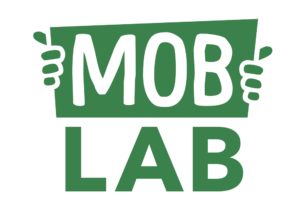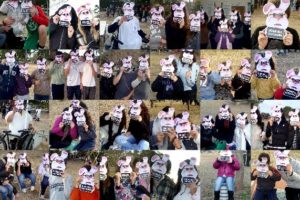It’s been a little over a year since 28-year-old Kristen Christian, outraged at a $5 debit-card fee from Bank of America, created a Facebook page calling on people to transfer their money from big banks to credit unions on Nov. 5, 2011, which she dubbed Bank Transfer Day.
The seemingly simple invite sparked a movement. In the month leading up to Bank Transfer Day, 85,000 Americans committed to switching banks. According to a recent American Banker article in the three months after Bank Transfer Day, about 5.6 million American consumers switched banks, with 610,000 citing Bank Transfer Day as a reason.
What follows is a Q&A with Kristen, on how she was able to rouse a movement entirely via social media.
Kristen, can you give us a detailed account of how the Bank Transfer Day campaign rolled out, how you promoted it and how it grew?
In early October 2011, I was outraged by the principle behind Bank of America’s policy that targeted the impoverished and working classes. Being inclined to focus on solutions rather than problems, I examined the fundamental structure of capitalism. While businesses have a right to choose how to operate, consumers have a duty to support businesses whose values echo their own. This false concept of “too big to fail” doesn’t exist under capitalism.
I decided it was my duty to “opt out” and subsequently created a Facebook event page where I suggested that 500 of my friends join me. Within three days the event page had 10,000 “attending” RSVPs, and my life was turned completely upside down within just a month.
Being a digital native, I wanted to help the movement evolve while maintaining an entirely digital approach to the organization of this independent consumer action. Event pages simply aren’t designed for the interest Bank Transfer Day had, so I created a supplementary Facebook fan page to keep up with the demand. (Kristen began recommending people post about Bank Transfer Day to their timeline, and wall of their local occupy movement to further build awareness. She also made flyers available for print on the Facebook page, which popped up all over her community and beyond).
(The campaign didn’t come without challenges. Kristen received threats to her life, which forced her to close down her Los Angeles art gallery, but she stayed committed to promoting an alternative to large profit-driven banks).
What surprised you about the Bank Transfer Day campaign?
I never dared to dream that a simple Facebook event would become the first American movement organized entirely via social media, though I’m so honored to have played a role in igniting this kind of change.
Has the campaign continued to build momentum, and if so, how are you supporting this?
I still independently maintain the Bank Transfer Day page more than a year later, which now has 56,000 likes. The fan page has new likes every day, though most of the “veteran” fans have already changed the way they bank. Among them, the discussion seems to have shifted to the necessity for legislation to protect member business lending.
I’ve spent much of the past year living out of a suitcase in order to keep up with a demanding speaking schedule that has allowed me to share my knowledge and experience with co-operatives across the world. Although I’ll still accept a few speaking requests each year, I’ve shifted my primary focus to consulting for individual companies on effective social media strategy, authentic marketing, and the Millennial & Homeland generations, among many topics. It’s both an honor and a privilege to work with companies whose mission I believe in.
Drawing on the wild success of your people-powered campaign, what kind of lessons do you think it offers to others wanting to achieve similar impact?
An oppressor would have you believe that you are powerless, yet history is full of supposedly powerless people who chose to plant their feet on the side of justice and stand firm. As society enters into this era of co-operation, we must remember to not merely point out problems, but offer viable solutions.
Stay Connected: @themschristian
Related Stories:
People power gets dairy producer to say no to GMO
Social Media Engagement FTW: Lessons from Greenpeace Brasil’s growth
Countless Lessons from Zero Plastic: How Dutch volunteers mobilised support
Do you have an innovation in mobilisation and people-powered campaigns? Share it with Mob Lab by contacting moblab@greenpeace.org.



